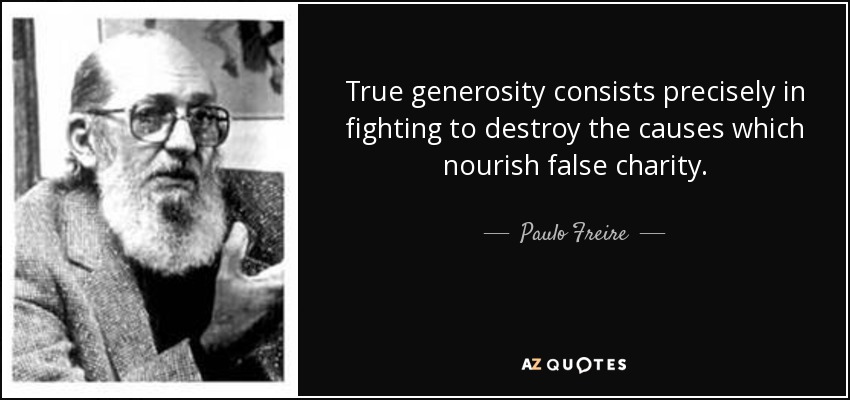This is the eighth blog in a series of ten by South Atlanta Community Facilitator, Dan Crain from a mini-book called, “Can you help me?
“Power and False Generosity”
Bryan Nixon said this in a reflection on Martin Buber’s book, I and Thou and how it applies to the therapeutic context between patient and therapist. “The between, also referred to as the interhuman or the intersubjective, is the space that arises due to the mutual presence that occurs when we turn away from separation and toward encounter with the other. Each of us has a fundamentally subjective stance toward reality, and we each desire to claim our own as the right stance. Sure, we are willing to bend a little bit regarding the cosmetics of our stance, but for the most part we often silently and stubbornly refuse to be impacted by the other. An objective stance refuses to enter into encounter by de-facing otherness. “
To take the idea of interdependency between patient and therapist and apply it to a relationship that is built on one party helping the other party revolutionizes the dynamic in the relationship. If the one that is in power in the relationship chooses to “be impacted by the other”, then something deeply powerful happens in the soul of the one in power. I have begun to make this a regular practice of paying attention to what the Spirit is trying to teach me in every relationship, particularly with those on the margins of society.
Living in a distressed community with young African-American men has shaped me to understand the systemic issues of poverty, racism and gentrification. Seeing the world through the eyes of young black men has drastically changed my perspective on reality.
This has helped me to move away from what Paulo Frier calls “false generosity” in his book, Pedagogy of the Oppressed. Chris Lahr says this about Frier’s book, “He states that any attempt to soften the power of the oppressor in deference to the weakness of the oppressed almost always manifests itself in the form of false generosity. False generosity gives you a warm feeling inside as you hand out food to the homeless, but the deeper questions of why they are homeless is never explored. False generosity makes it ok to come into a poor community unannounced to pass out tracks, hand out candy, and preach the Word… never building meaningful relationships and opening yourself up to truly making a change for the sake of justice. Freire says that, “injustice is perpetuated so generosity can continue to be expressed.”
He goes on to say that “True generosity consists precisely in fighting to destroy the causes which nurture false generosity” (p.27). If we really want to be able to destroy the causes, which nurture false generosity, we must be able to live in solidarity with those in need. Justice cannot be handed top down, but is created in the context of beloved community. In solidarity we are able to see the image of God in others, as well as see our own humanity.” [1]
Learning to live in solidarity with the vulnerable and receive from their worldview allows me as a white male to speak into the powers that are trying to destroy those on the margins. I will never fully be able to understand the pain and struggle of those on the margins, but learning to receive gives me a glimpse into their world.
[1] Chris Lahr, “Red Letter Christians”: http://www.redletterchristians.org/on-the-receiving-end-beggars-and-pbj/



Give your comments